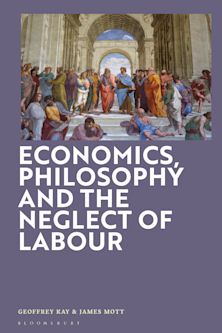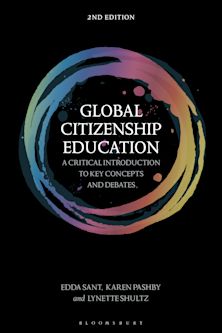- Home
- ACADEMIC
- Philosophy
- Social and Political Philosophy
- Humanitarian Identity and the Political Sublime
Humanitarian Identity and the Political Sublime
Intervention of a Postcolonial Feminist
Humanitarian Identity and the Political Sublime
Intervention of a Postcolonial Feminist
This product is usually dispatched within 1 week
- Delivery and returns info
-
Free US delivery on orders $35 or over
You must sign in to add this item to your wishlist. Please sign in or create an account
Description
In Humanitarian Identity and the Political Sublime, Ashmita Khasnabish engages with Indian philosophy, feminist theory, cultural studies, and literary criticism to articulate a pluralistic, post-Enlightenment theory of identity. The volume is divided into three sections. The first, "Negotiating the Material/Political identity within the Psychic," sketches a theory of complex identity that aims to strike a balance between the psychic forces endemic to the self and external political pressures towards ego-transcendence. Borrowing insights from Teresa Brennan's critique of Lacan's psychical fantasy of women and Franz Fanon's account of the close relations between gender and racial discrimination, Khasnabish further articulates her theory of identity in the volume's second section, "Repression Due to Colonization." Finally, in the third section, Khasnabish situates her concept of "the political sublime" among Amartya Sen's view of pluralistic identity, Sri Aurobindo's philosophy of the "religion of human unity," and the fiction of Jamaica Kincaid and Salman Rushdie. The result is a careful reflection on the nature of post-colonial identity that achieves an original rapprochement between European/Western philosophy of enlightenment and East/India/Bengali intellectual and spiritual thought.
Product details
| Published | Mar 16 2009 |
|---|---|
| Format | Hardback |
| Edition | 1st |
| Extent | 190 |
| ISBN | 9780739122921 |
| Imprint | Lexington Books |
| Dimensions | 9 x 6 inches |
| Publisher | Bloomsbury Publishing |
About the contributors
Reviews
-
Ashmita Khasnabish sets forth a very ambitious project in this book – to bring into dialogue disciplines, theoretical schools, and historical moments that are seemingly antithetical: the European Enlightenment and 20thcentury Indian thought, as well as European and American feminisms. She builds her theoretical argument carefully, distilling from the thought of a rich array of theorists elements from which she constructs her own, and very different, system. This is a highly original construct, originating in the author's specific cultural situation.
Christine Evans, Professor of Comparative Literature, Lesley College
-
Few people have the ability - and the audacity - to combine Western and Eastern philosophies within the pages of one book. But that is exactly what Ashmita Khasnabish has done. Blending psychoanalysis, post-colonial theory, feminism and more, Khasnabish offers a vision of a future built on the humanly sublime.
Shulamit Reinharz, PhD, Jacob Potofsky Professor of Sociology; Founding Director Brandeis University Women's Studies Research Center
-
Ashmita Khasnabish imagines a humanism that escapes the narrow confines of eurocentrism by embracing Amartya Sen's conviction that we have plural identities. Writing from a feminist point of view, she finds common cause in Sri Aurobindo's supramental consciousness and Luce Irigaray's theory of the divine, and reads Salman Rushdie and Jamaica Kincaid with an eye for psychic and political balance. As a child of the enlightenment and of south Asia, Khasnabish here proposes a purification of western reason. A most interesting and imaginative confluence of thinkers.
John C. Hawley, Santa Clara University
-
Humanitarian Identity and the Political Sublime is a very fascinating and rewarding book to read as it addresses some of the perennial problems of humankind in both novel and feminist ways. Also, it provides us with new readings of the works of Jamaica Kincaid that interpret them in very spiritual ways.
Antigua and Barbados Review Of Books
-
On the whole, Humanitarian Identity and the Political Sublime is a very complex book. It is ambitious in scope as well as daringly different....For those looking for a fresh approach to postcolonial theory and criticism, this is a most intriguing and rewarding book."
CLR James Journal




































